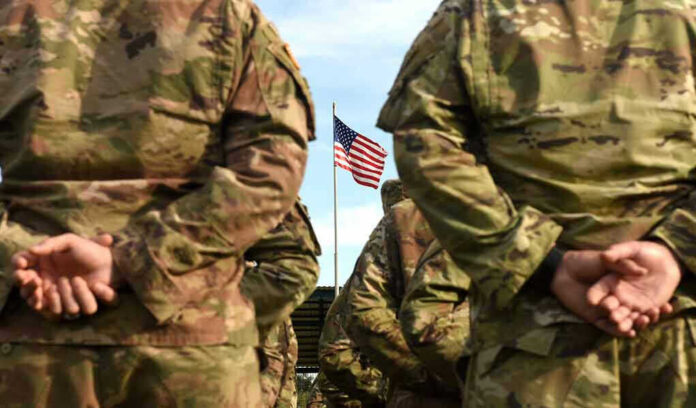
One hundred survivors and families of Maine’s deadliest mass shooting are suing the U.S. Army for ignoring explicit warnings about Army Reservist Robert Card’s violent threats and deteriorating mental health before he killed 18 innocent Americans.
Story Highlights
- Army Reservist Robert Card killed 18 people in Lewiston, Maine on October 25, 2023, despite documented warnings
- 100 survivors and victims’ families filed claims against the U.S. Army and military hospital for institutional negligence
- Plaintiffs argue Army ignored Card’s “hit list” and homicidal threats, making this a preventable tragedy
- Legal experts call this one of the strongest cases against federal negligence in mass shooting history
Army Ignored Clear Warning Signs of Violence
The federal government faces unprecedented legal action from survivors of Robert Card’s October 2023 shooting rampage in Lewiston, Maine. Card, an Army Reservist, systematically murdered 18 people and wounded 13 others at a bowling alley and bar using a .308 rifle. Attorneys representing 100 plaintiffs argue the Army possessed explicit knowledge of Card’s deteriorating mental state, including paranoid delusions, homicidal ideations, and a documented “hit list” targeting fellow service members.
Military superiors and hospital staff received multiple warnings about Card’s dangerous behavior in the months preceding the attack. Despite these red flags, the Army failed to disarm Card, restrict his firearm access, or provide mandatory long-term psychiatric care. This institutional negligence enabled Card to carry out what attorneys describe as “one of the most preventable mass shootings in American history,” highlighting dangerous gaps in military mental health protocols.
Legal Battle Against Government Accountability Failures
Four law firms representing the plaintiffs filed formal notices of claim in September 2025, initiating a six-month waiting period before proceeding with federal litigation. The legal strategy focuses on overcoming sovereign immunity by demonstrating gross negligence and institutional failures that directly contributed to the tragedy. Unlike typical mass shooting lawsuits targeting local law enforcement, this case directly challenges federal military institutions and their responsibility for service member oversight.
The plaintiffs must prove the Army’s actions constituted more than simple negligence to succeed against federal defendants. Legal experts note the strength of this case given the documented warnings and institutional knowledge of Card’s violent tendencies. The outcome could establish significant precedent for military accountability in cases involving service members who commit mass violence after displaying clear warning signs.
Broader Implications for Military Mental Health Oversight
This lawsuit exposes critical weaknesses in military mental health intervention protocols and firearm access controls for at-risk personnel. The case highlights how bureaucratic failures and inadequate response systems can enable preventable tragedies when clear warning signs are ignored. Military and federal agencies now face increased scrutiny regarding their procedures for identifying, monitoring, and restricting dangerous service members who pose threats to public safety.
The litigation represents more than seeking compensation for victims’ families—it demands systemic reform to prevent future institutional failures. If successful, the case could force comprehensive changes to military mental health protocols, firearm access restrictions, and intervention procedures for service members displaying violent tendencies. The Lewiston community and affected families continue advocating for accountability and reform while recovering from Maine’s deadliest mass shooting in state history.
Sources:
CBS News – Lewiston Maine Mass Shooting Victims Start Process Suing Army
Boston25 News – Lewiston Shooting Survivors Victims Families Sue United States
Bangor Daily News – Lewiston Mass Shooting Victims File Lawsuit Against Army New York Hospital
The Independent – Maine Mass Shooting Survivors Lawsuit Government

































